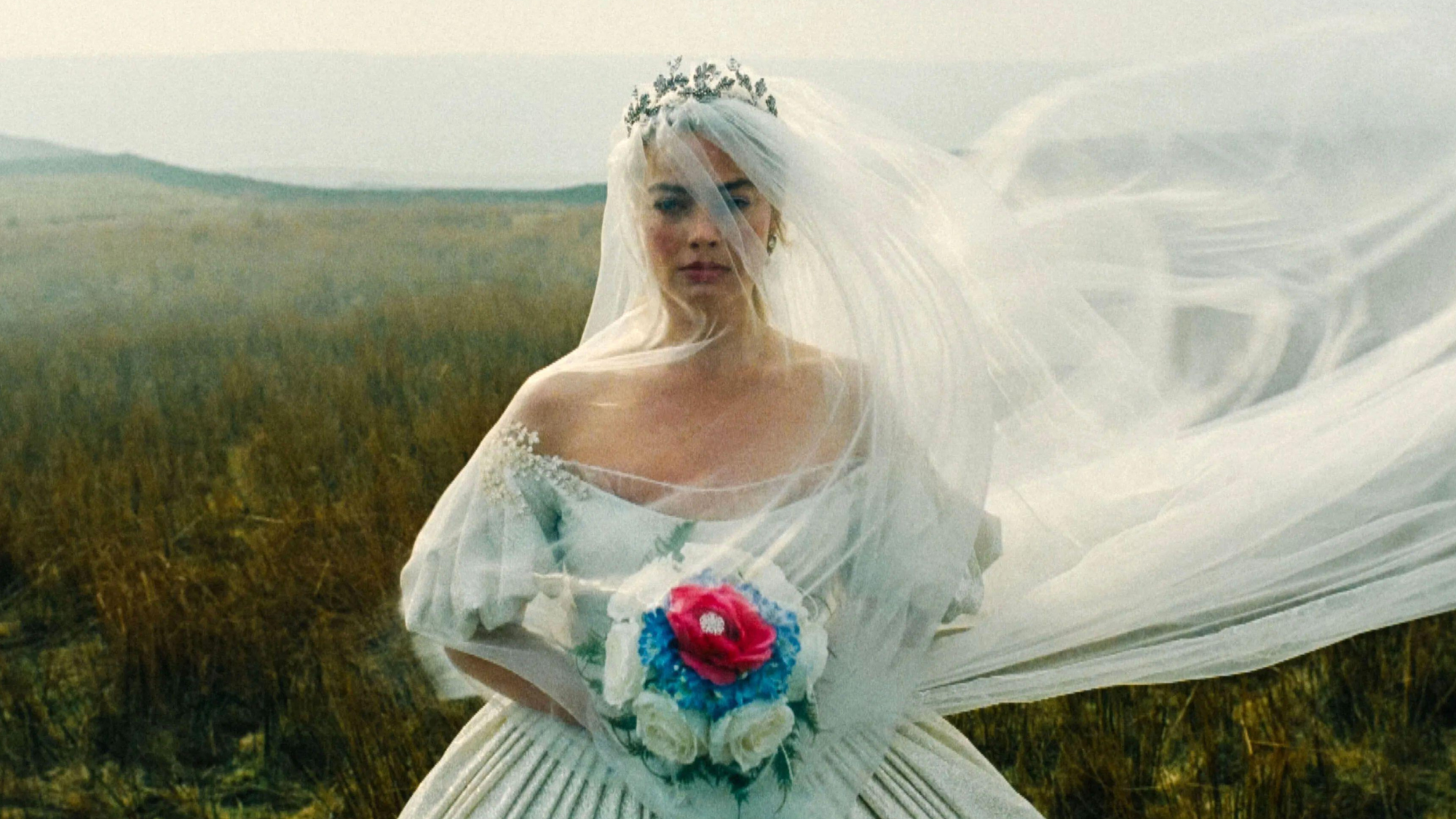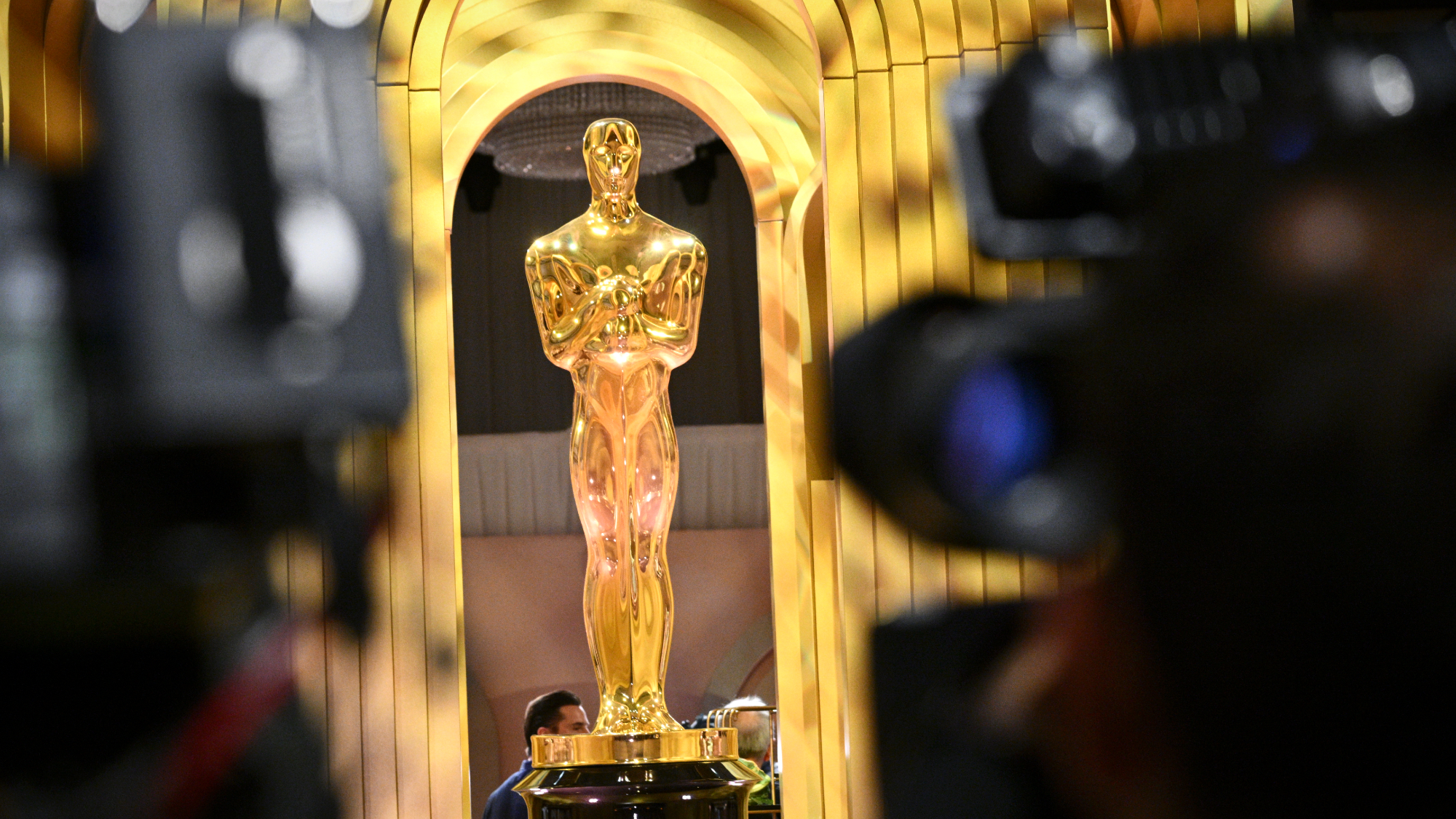The most anticipated movies of 2026
If the trailers are anything to go by, film buffs are in for a treat

A free daily email with the biggest news stories of the day – and the best features from TheWeek.com
You are now subscribed
Your newsletter sign-up was successful
From “One Battle After Another” to “Sinners”, it’s been an incredible year for film – and 2026 looks just as exciting. Whether you’re a “Toy Story” fan or Christopher Nolan’s latest epic is more your speed, these are the must-see movies to catch at the cinema in the new year.
February: Wuthering Heights

The trailer for Emerald Fennell’s “ravishingly stylish” adaptation of Emily Brontë’s only novel sent much of the internet into a “tizzy”, said Jack King in GQ. This “definitely isn’t the ‘Wuthering Heights’ you read for your GCSEs”. As you would expect from the director of “Saltburn”, the trailer was “factory-made to provoke a reaction”. In her “gleefully anachronistic romance”, Margot Robbie (pictured above) and Jacob Elordi take on the starring roles of Catherine and Heathcliff, while Charli XCX has contributed some “absolute bangers” to the soundtrack. Is it a surprise Fennell’s film “seemingly sticks a middle finger up at the source material? More to the point: does it really matter, when it looks like this much of a laugh?”
March: The Bride

Maggie Gyllenhaal’s “fresh take” on Mary Shelley’s classic novel stars Jessie Buckley as the “kick-ass outlaw lover for a punk Frankenstein”, said Etan Vlessing in The Hollywood Reporter. Christian Bale takes on the role of a “lonesome” Frankenstein who recruits Dr. Euphronious (Annette Bening) to create him a companion by bringing a murdered young woman to life. Set in 1930s Chicago, the film has a touch of “Bonnie and Clyde”: the pair soon embark on a “monstrous” killing spree, leaving a trail of destruction in their wake.
The Week
Escape your echo chamber. Get the facts behind the news, plus analysis from multiple perspectives.

Sign up for The Week's Free Newsletters
From our morning news briefing to a weekly Good News Newsletter, get the best of The Week delivered directly to your inbox.
From our morning news briefing to a weekly Good News Newsletter, get the best of The Week delivered directly to your inbox.
May: The Mandalorian & Grogu

“‘Star Wars’ fans are one step closer to returning to a galaxy far, far away”, said Jordan Moreau in Variety. The action follows Pedro Pascal as The Mandalorian, a bounty hunter, and his “adorable sidekick” Grogu (aka Baby Yoda). Other big names among the star-studded cast include Jeremy Allen White as Jabba the Hutt’s son Rotta and Sigourney Weaver as a fighter pilot. In the trailer, the titular heroes fight “what appears to be a Rancor-like lizard monster in Rotta the Hutt’s arena and bring down a lumbering AT-AT, which slowly falls down a mountainside in epic fashion”.
May: The Devil Wears Prada 2

Meryl Streep and Anne Hathaway have reunited for the sequel to the “beloved” 2006 film, “The Devil Wears Prada”, said Leia Mendoza in Variety. The follow-up will see Runway editor-in-chief Miranda Priestly (Streep) attempt to “navigate her career in a world where print journalism is dying”. She soon comes into the orbit of Emily Charlton (Emily Blunt), who is now a “high-powered executive for a luxury group with advertising dollars that Priestly desperately needs”. New additions to the cast include Kenneth Branagh, who takes on the role of Priestly’s new husband, with reported cameos from Sydney Sweeney and Lady Gaga.
June: Toy Story 5

The first trailer for “Toy Story 5” has offered a tantalising glimpse of the “highly anticipated animated sequel”, said Benjamin Lee in The Guardian. Disney has revealed a new nemesis for the toys: a smart tablet called Lilypad, voiced by Greta Lee. Tom Hanks, Tim Allen and Joan Cusack will be returning to the voice cast, while Ernie Hudson will take over the role of Combat Carl, following the death of Carl Weathers last year.
July: The Odyssey
After cleaning up at last year’s Oscars with “Oppenheimer”, Christopher Nolan will return to the big screen with his 13th feature film – and the director is “dreaming even bigger”, said Ben Travis in Empire. Nolan will be “going back to where it all began”, tackling Homer’s ancient Greek epic poem: a “sprawling tale that sees Odysseus (here played by Matt Damon) make a decade-spanning journey home to his wife, Penelope, in the wake of the Trojan War, enduring unimaginable trials along the way”. The “seismic” story required Nolan to scale up. “Big locations, big stars, big spectacle.” It’s not to be missed.
A free daily email with the biggest news stories of the day – and the best features from TheWeek.com
July: Spider-Man: Brand New Day
Tom Holland is “swinging back into duty” for the latest Marvel Studios and Sony Pictures collaboration, said Erik Amaya on Rotten Tomatoes. As expected, plot details are being kept “under wraps”, but we do know Peter Parker is trying to leave Spider-Man behind and focus on college. Zendaya is also returning as MJ, and Sadie Sink has reportedly been cast although her role hasn’t yet been confirmed. (Fan theories about her role include Mayday Parker: Peter and MJ’s child from an alternative future.)
Summer: The Adventures of Cliff Booth
Fans are “eagerly speculating at what to expect” from the David Fincher-directed sequel to Quentin Tarantino’s “Once Upon a Time in Hollywood”, said Andrew McGowan in Variety. Brad Pitt is reprising his Oscar-winning role as Cliff Booth – the “cool, collected and devilishly charming 1960s Hollywood stunt double”. Details beyond this remain sparse, but we do know Fincher took up the “directorial reins” after Tarantino – who penned the script – decided he wanted to explore other creative projects. It’s a Netflix Original film, which means “it might not get much time on the big screen”, given the streaming platform’s “hesitancy to give its films wide theatrical releases”.
Irenie Forshaw is the features editor at The Week, covering arts, culture and travel. She began her career in journalism at Leeds University, where she wrote for the student newspaper, The Gryphon, before working at The Guardian and The New Statesman Group. Irenie then became a senior writer at Elite Traveler, where she oversaw The Experts column.
-
 How the FCC’s ‘equal time’ rule works
How the FCC’s ‘equal time’ rule worksIn the Spotlight The law is at the heart of the Colbert-CBS conflict
-
 What is the endgame in the DHS shutdown?
What is the endgame in the DHS shutdown?Today’s Big Question Democrats want to rein in ICE’s immigration crackdown
-
 ‘Poor time management isn’t just an inconvenience’
‘Poor time management isn’t just an inconvenience’Instant Opinion Opinion, comment and editorials of the day
-
 Microdramas are booming
Microdramas are boomingUnder the radar Scroll to watch a whole movie
-
 The biggest box office flops of the 21st century
The biggest box office flops of the 21st centuryin depth Unnecessary remakes and turgid, expensive CGI-fests highlight this list of these most notorious box-office losers
-
 The 8 best superhero movies of all time
The 8 best superhero movies of all timethe week recommends A genre that now dominates studio filmmaking once struggled to get anyone to take it seriously
-
 Josh D’Amaro: the theme park guru taking over Disney
Josh D’Amaro: the theme park guru taking over DisneyIn the Spotlight D’Amaro has worked for the Mouse House for 27 years
-
 Golden Globes affirm ‘One Battle,’ boost ‘Hamnet’
Golden Globes affirm ‘One Battle,’ boost ‘Hamnet’Speed Read Comedian Nikki Glaser hosted the ceremony
-
 Oscars jump to YouTube after decades at ABC
Oscars jump to YouTube after decades at ABCSpeed Read The awards show will be broadcast worldwide on YouTube starting in 2029
-
 Son arrested over killing of Rob and Michele Reiner
Son arrested over killing of Rob and Michele ReinerSpeed Read Nick, the 32-year-old son of Hollywood director Rob Reiner, has been booked for the murder of his parents
-
 Rob Reiner, wife dead in ‘apparent homicide’
Rob Reiner, wife dead in ‘apparent homicide’speed read The Reiners, found in their Los Angeles home, ‘had injuries consistent with being stabbed’